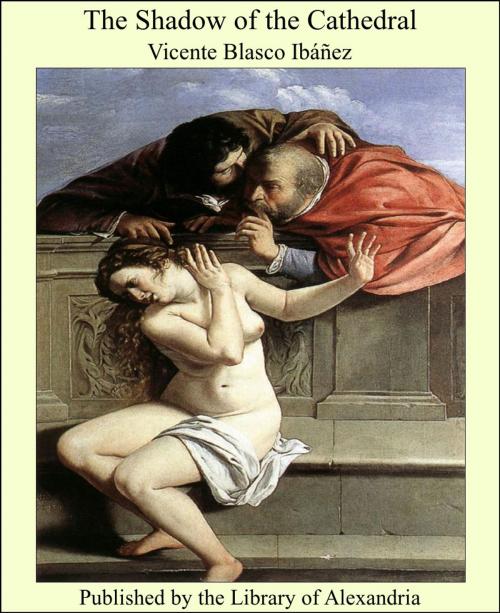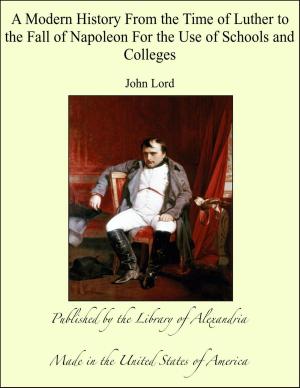The Shadow of the Cathedral
Nonfiction, Religion & Spirituality, New Age, History, Fiction & Literature| Author: | Vicente Blasco Ibáñez | ISBN: | 9781465534620 |
| Publisher: | Library of Alexandria | Publication: | March 8, 2015 |
| Imprint: | Language: | English |
| Author: | Vicente Blasco Ibáñez |
| ISBN: | 9781465534620 |
| Publisher: | Library of Alexandria |
| Publication: | March 8, 2015 |
| Imprint: | |
| Language: | English |
There are three cathedrals which I think will remain chief of the Spanish cathedrals in the remembrance of the traveller, namely the Cathedral at Burgos, the Cathedral at Toledo, and the Cathedral at Seville; and first of these for reasons hitherto of history and art, and now of fiction, will be the Cathedral at Toledo, which the most commanding talent among the contemporary Spanish novelists has made the protagonist of the romance following. I do not mean that Vincent Blasco Ibañez is greater than Perez Galdós, or Armando Palacio Valdés or even the Countess Pardo-Bazan; but he belongs to their realistic order of imagination, and he is easily the first of living European novelists outside of Spain, with the advantage of superior youth, freshness of invention and force of characterization. The Russians have ceased to be actively the masters, and there is no Frenchman, Englishman, or Scandinavian who counts with Ibañez, and of course no Italian, American, and, unspeakably, no German. I scarcely know whether to speak first of this book or the writer of it, but as I know less of him than of it I may more quickly dispatch that part of my introduction. He was born at Valencia in 1866, of Arragonese origin, and of a strictly middle class family. His father kept a shop, a dry-goods store in fact, but Ibañez, after fit preparation, studied law in the University of Valencia and was duly graduated in that science. Apparently he never practiced his profession, but became a journalist almost immediately. He was instinctively a revolutionist, and was imprisoned in Barcelona, the home of revolution, for some political offence, when he was eighteen. It does not appear whether he committed his popular offence in the Republican newspaper which he established in Valencia; but it is certain that he was elected a Republican deputy to the Cortes, where he became a leader of his party, while yet evidently of no great maturity.
There are three cathedrals which I think will remain chief of the Spanish cathedrals in the remembrance of the traveller, namely the Cathedral at Burgos, the Cathedral at Toledo, and the Cathedral at Seville; and first of these for reasons hitherto of history and art, and now of fiction, will be the Cathedral at Toledo, which the most commanding talent among the contemporary Spanish novelists has made the protagonist of the romance following. I do not mean that Vincent Blasco Ibañez is greater than Perez Galdós, or Armando Palacio Valdés or even the Countess Pardo-Bazan; but he belongs to their realistic order of imagination, and he is easily the first of living European novelists outside of Spain, with the advantage of superior youth, freshness of invention and force of characterization. The Russians have ceased to be actively the masters, and there is no Frenchman, Englishman, or Scandinavian who counts with Ibañez, and of course no Italian, American, and, unspeakably, no German. I scarcely know whether to speak first of this book or the writer of it, but as I know less of him than of it I may more quickly dispatch that part of my introduction. He was born at Valencia in 1866, of Arragonese origin, and of a strictly middle class family. His father kept a shop, a dry-goods store in fact, but Ibañez, after fit preparation, studied law in the University of Valencia and was duly graduated in that science. Apparently he never practiced his profession, but became a journalist almost immediately. He was instinctively a revolutionist, and was imprisoned in Barcelona, the home of revolution, for some political offence, when he was eighteen. It does not appear whether he committed his popular offence in the Republican newspaper which he established in Valencia; but it is certain that he was elected a Republican deputy to the Cortes, where he became a leader of his party, while yet evidently of no great maturity.















